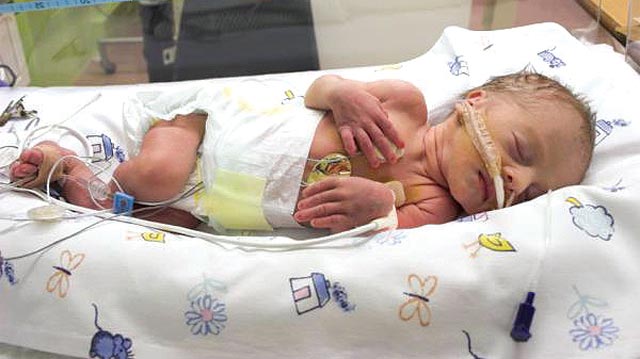Story, Louvier Kindo Tombe

Prematurity is among the 3 principal causes of infancy death in Cameroon. It is the second leading cause of death in children between 0 and 5 years.
“More than 90 percent of premature children in low income countries die within the early days of birth,” Dr. Berlyse Ngum told journalists in Yaounde.
Dr. Berlyse Ngum is from UNICEF Cameroon, and she was speaking during a press briefing organized to shed light on the situation of prematurity in Cameroon and the world at large. The press briefing held at the Head Office UNICEF in Yaounde on Tuesday November 7, 2023. It was part of activities marking the Prematurity Awareness Month observed every November.

This year, the world prematurity day coming up on November 17 would be observed on the theme “small action, big impact: immediate skin to skin care for every baby everywhere”.
Prematurity is a situation where a baby is born before 37 weeks of pregnancy. “Such babies should weigh more than 500gms to be considered premature”, Dr. Berlyse Ngum told reporters during the presser. The particularity of such babies is that most of their organs don’t get mature and this exposes them to severe health complications like breathing difficulty, asthma, pneumonia….etc, which can likely lead to death if not properly handled.
The causes of prematurity may include malnutrition, multiple pregnancies, infections and chronic conditions such as diabetes and high blood pressure. However, often no cause is identified. There could also be a genetic influence.
The severity of prematurity calls for intense actions to prevent it both at the level of health personnel, pregnant women, mothers, families and promoters of health facilities. Pregnant women should respect prenatal consultations, vaccines and other prescriptions from health personnel. These personel are invited to show some love to the pregnant women as they visit the health facilities.

UNICEF is supporting the government of Cameroon through the first 1000 days program to ensure that every pregnant woman benefits from optimal monitoring during pregnancy and that this monitoring continues after delivery with appropriate care for the mother and the newborn.
Caring for premature babies

One of the most appropriate ways of caring for premature babies is through the Kangaroo Mother care Method. UNICEF supports this method where a mother holds her baby to her bare chest so the baby has direct skin-to-skin contact with her. The baby is held upright with their head to one side between the mother’s breasts or against the partner’s chest. This method is practiced both in the hospital and at home.
Another and most costly method is to place the child in an incubator. Health officials say that between FCFA 600,000 and 1,000,000 is needed to take complete care of a premature baby.
Worth noting is the fact that every child has the right to live, and premature babies are not different from other children. The idea is to show them love.








